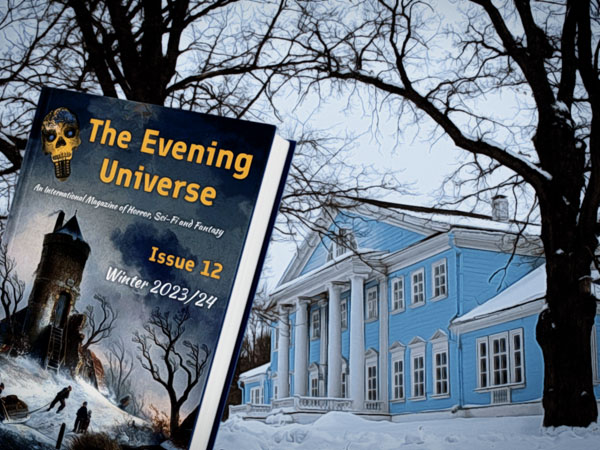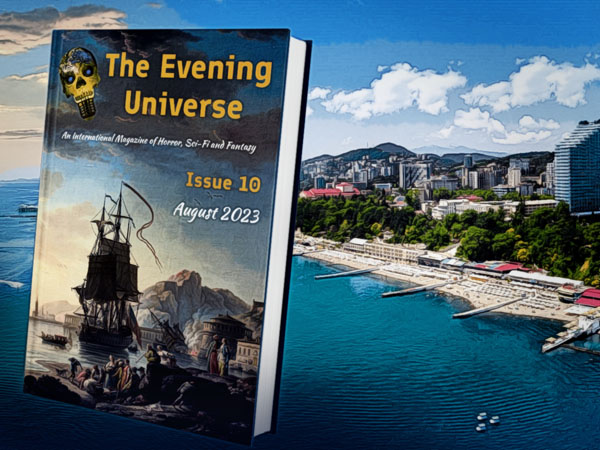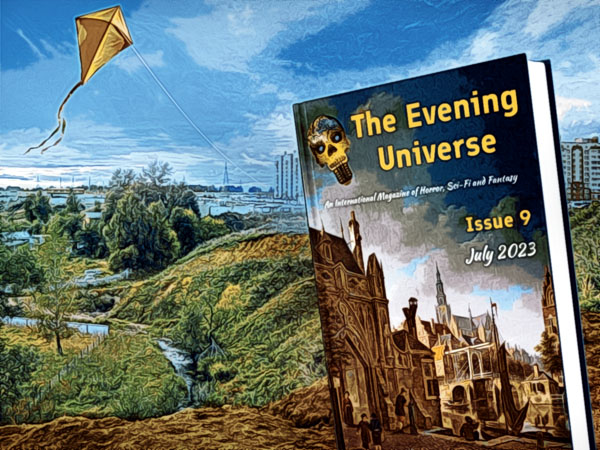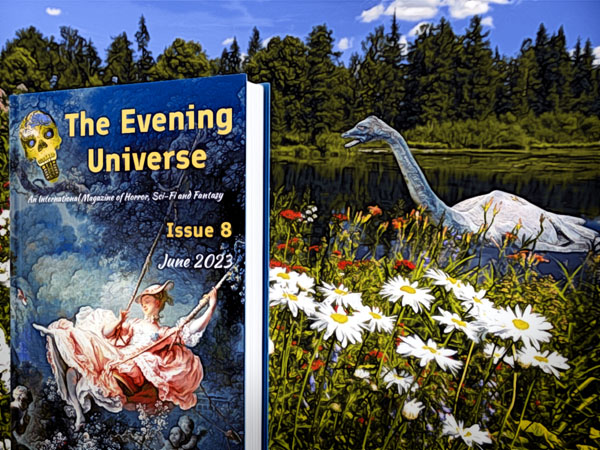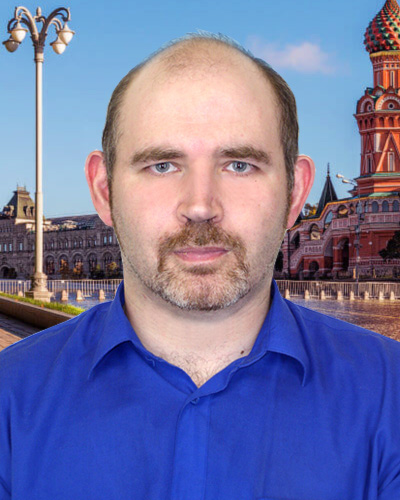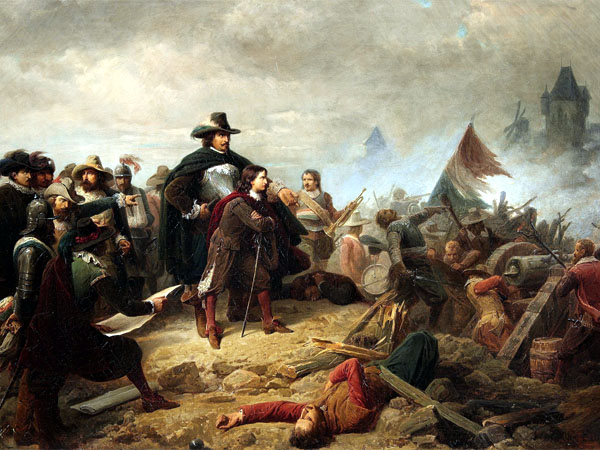
Christian Sell, “A General on the Battlefield during the Thirty Years’ War” (1854)
After a fierce battle, the troops of the defeated army retreated. The battlefield belonged to the conqueror now. Pursuing the retreating scattered groups of the enemy, the King with his retinue surrounded a little girl of about eight years old, who was crying with fear. Apparently, she was from the nearest village and involuntarily found herself here, in the very heat of battle. Riding up to the girl, the King asked her how she came to be here.
“I live nearby,” the girl explained, wiping her tears. “When it all started, I got scared and did not know where to run. So I remained in the bushes, having nowhere else to hide myself. And when our troops left the battlefield, I could not get away, because your warriors were all around me in every direction.
“Well,” the King said. “It appears you have been captured by us. But I don’t fight children and especially females.” Then he called out to one of his attendants, “Squire!”
“I’m listening, Your Majesty!” the squire immediately approached the King.
“Take her to her village. Maybe her parents are worried about her. If you get in trouble, say that you are sent by me.”
The squire took the girl by the hand, lifted her up and seated her on the saddle in front of him.
“Where is your village?” he asked.
“Very close, straight ahead and to the left,” she said.
“All right,” he answered and spurred his horse.
When they reached the village, charred houses and ashes met them. The ground was covered with the bodies of the inhabitants who accepted an unequal battle with the advancing enemy.
The girl rushed to her house. But her father, mother and brothers have met their fate with weapons in their hands. The girl collapsed on her knees in front of their bodies. She kissed and hugged them. An hour passed, and the King entered the village by the same road. On seeing his squire and the sobbing girl, he sighed sadly, realizing what occurred to her family. The King felt sorrow and approached the girl.
“Look, you told me that you don’t fight females!” she threw the accusation in his face.
“I did not lie,” the King objected. “But I was talking about women without weapons in their hands. Your loved ones chose their own fate, and I am not able to change what has happened. As well as I can’t turn the clock back. Woe to the vanquished.”
The girl noticed a dagger, which someone has dropped in the heat of battle, picked it up from the ground and attacked the King. He disarmed her and threw the dagger aside.
“I am not responsible for the death of your family. Yes, your relatives defended their home, but there was no need for this. While pursuing enemy, I have never robbed civilians. But since the inhabitants of your village met my army with weapons in their hands, my warriors had to defend themselves. Everyone has the right to do it.”
“But nobody asked you to come here,” the girl disagreed.
“Sometimes circumstances are stronger than us. If I had not brought my army here, enemy troops would come to my country. And I would have to defend my palace. And my mother, wife and children would have a fate similar to that of your family. Perhaps they would also take up arms and die. But if not, there is still nothing worse than the fate of the captives.”
“You left me alive, so I am your prisoner now?” the girl asked.
“No, you are free. I gave my word. The King’s word is sacred.”
“I have nowhere to go,” the girl said. “And nobody needs me.”
The King thought for a while and then called one of his attendants.
“Take her with you,” the King ordered him.
“Your Majesty, you are making a mistake. She will grow up and take revenge.”
“So be it, but I will not become a child-killer.”
The girl followed the King as part of his retinue. Years passed, and she somehow became his most faithful bodyguard.
July 14, 2016.

